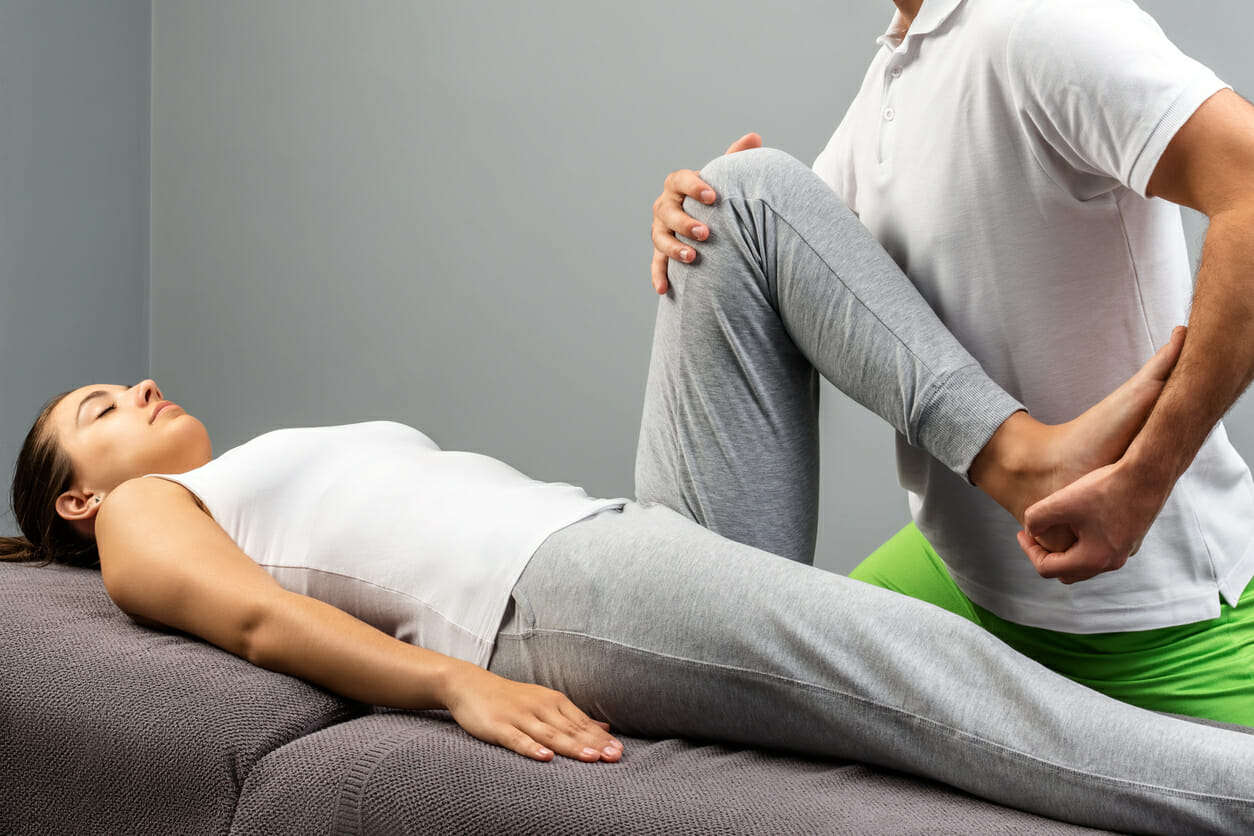Have you ever experienced a “snap” or “pop” when you forcefully lift, lower, or swing your leg? If this sounds familiar, you may be experiencing snapping hip syndrome. This typically makes it difficult to perform activities such as hiking, running, jumping, and cycling. While snapping hip syndrome most often occurs in athletes who participate in sports such as dance, soccer, weightlifting, and running, an estimated 5-10% of the population in the United States experiences it in daily activities.
If this is slowing you down, physical therapy can help. Your Physical Therapist will create an individual treatment plan to reduce your symptoms and help you cope with and reduce your pain. Working with a Physical Therapist can help improve motion, strength, and prevent future injury. It will also help to improve your recovery time.
Samantha experienced snapping hip syndrome and went to a Physical Therapist for help, here are some highlights from her story. To read her full story, check it out here.
“Her therapist explains that the syndrome developed because Samantha had increased her activity level too quickly, and hadn’t allowed time for her muscles to adapt successfully to the new demands placed on them. She assures Samantha that she will be able to participate in her workout activities quite well after her muscles are properly stretched and strengthened. She advises her to avoid movements that cause the snapping, and to take a break from her dance class.
Over the next few weeks, Samantha’s Physical Therapist evaluates her condition each time she visits the clinic and adjusts her exercise and treatment program as needed to help her recover as quickly as possible.
At this week’s session, Samantha reports the snapping has subsided and she is pain-free. Her Physical Therapist encourages her to continue her home-exercise program, and allows her to return to her dance class.”
Don’t continue to live with this pain, give us a call to schedule your appointment! No referrals are necessary, we’ll get you on the road to recovery.


